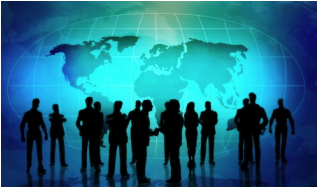
The Center for Progressive Development provides state-of-the-art knowledge and resources for organizations, institutions and individuals seeking positive human development and a healthy, progressive management culture. That’s a challenge within today’s careerist and technology-driven culture. Both people and companies face many confusing transitions, conflicts, competing values and contradictory goals within our rapidly-changing, highly interconnected and globalized world.
We help individuals and organizations deal with the ways in which their careers, the changing workplace, gender issues, and the global culture may support health and growth; or conflict and decline, especially during midlife and midcareer. Our focus includes resolving career and management conflicts; creating “green” leadership practices; developing positive, collaborative relationships; and supporting an overall sense of psychological health and life purpose in individual lives and society.
For organizations, we help leaders, their teams and subordinates deal with the impact of change and transition upon the organization’s goals. For example, learning how to reduce the gap between organizational mission and actual conduct or practices. That may include helping organizations address and resolve the mixture of personal and management conflicts that often occur, in the transition to healthier management practices.
For individuals, the Center provides resources for new learning, personal change, and self-awareness through executive coaching/consultation and creating new directions in both career and personal lives.
Our leadership development and career transition programs are based on state-of-the-art knowledge about links between personal emotional development and strategies that enable business and organizational success within today’s shifting social and economic environment.
The Center’s Philosophy
Our work is grounded in a perspective of interconnectedness of all life, and that interwoven relationships exist between our physical, emotional, cognitive, relational, and spiritual lives; between our mind/body/spirit and the larger physical, social and cultural systems of which we are a part. The latter include family dynamics, gender socialization, socially conditioned attitudes and values, economic and political forces, new technology, and the globalized, interdependent world that now exists.
The workplace and the larger culture shape our character orientation, our values, the kinds of relationships we engage in, as well as our unconscious attitudes and conflicts. All of these forces get expressed in our overall way of life, or life “practice.” They also determine our perceptions of available solutions to our life dilemmas. The mix of family, cultural, and social forces can negatively affect, distort or freeze human development, psychologically and spiritually, throughout adult lives; as well as support positive growth and evolution.
We see the latter in terms of continuous development of such human capacities as empathy, compassion, positive engagement with diverse people, and creative expression. We believe that these capacities are necessary for the well-being of individuals and societies. However, understanding what supports them is often poorly understood or neglected. In our view, positive human development includes more than resolving or managing conflict and trauma. It also includes enhancing greater emotional and social awareness, and creating actions that support new growth. That is, in addition to freedom from the distortion and damage from childhood experiences, positive development also requires awakening to and letting go of socially conditioned attitudes and values that limit self-awareness; that feed self-serving, egocentric perspectives and behavior.
Cultivating meaning, purpose, and the capacity for love are forms of strengthening our connections in life, rather than serving our isolated egos. That’s a nonmaterial, psychological-spiritual challenge. It requires, for example, practicing compassion and mutuality, as opposed to domination, submission or isolated detachment. It also requires enhancing creative powers in work and in everyday life, through flexible thinking and resiliency in the face of new challenges or problems.


The Center wants to help reverse the prevailing assumption in our culture that human life exists to serve economic and business development and success, rather than the other way around. This assumption has generated the rampant workaholism, disconnection and dysfunction in our society. In contrast, we support the emerging business model that joins business success with serving human development and a sustainable world. That includes enhancing well-being and security, building democratic institutions, social justice and sustainable practices at all levels of society. In short, the Center believes that the creation of wealth and capital should serve the positive development of human lives.
